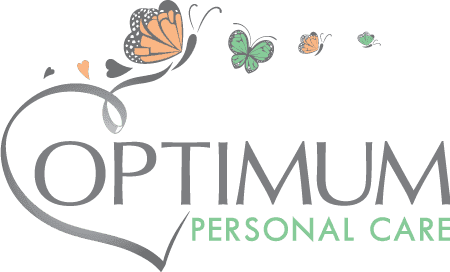As our loved ones age, it can be heartbreaking to witness their struggle with daily tasks and lose the ability to remember cherished memories. This pain is even more profound when they are diagnosed with Alzheimer’s disease or dementia, conditions that rob them of their independence and leave them feeling confused and isolated.
The good news is that assisted living facilities offer a solution for those who need extra care and assistance in their day-to-day lives. These communities provide specialized services to help individuals with Alzheimer’s or dementia maintain a sense of dignity and purpose while receiving the support they need.
In this blog post, we’ll take a light and cheerful look at the benefits of assisted living for these individuals and how it can have a positive impact on their lives.
Creating a Safe and Secure Environment
Assisted living communities are designed specifically to provide a safe and secure environment for seniors with memory impairments. With trained staff available around the clock, residents receive the support they need to live comfortably and confidently. From medication management to help with activities of daily living, caregivers work closely with each resident to ensure their needs are met.
Most importantly, assisted living provides a sense of community that can be invaluable for those struggling with Alzheimer’s or dementia. Residents have the opportunity to socialize and participate in activities that help keep their minds engaged and active.
Expert Care and Support
It can be heartbreaking to witness a family member’s decline in cognitive function as they struggle to remember the simplest things. Alzheimer’s disease and dementia are two conditions that are particularly devastating for both the individual affected and their loved ones.
However, assisted living facilities provide expert care and support for individuals with these impairments. The staff at these facilities work tirelessly to ensure that their residents receive personalized care tailored specifically to their needs. They understand the unique challenges faced by those with Alzheimer’s or dementia and strive to create a safe, comfortable environment where residents can thrive.
Structured and Stimulating Activities
Assisted living facilities offer structured and stimulating activities that are designed to engage these individuals on both physical and emotional levels.
Activities like arts and crafts, music therapy, pet therapy, exercise classes, gardening, cooking classes, and brain games have all been shown to have a positive impact on those with Alzheimer’s disease or dementia. These activities not only provide stimulation for the mind but also offer social interaction, which is important in maintaining cognitive function. The structured nature of these activities helps residents feel less overwhelmed by their surroundings, while also providing a sense of routine that can help reduce anxiety.
Socialization and Community Engagement
No more isolation! The heartfelt mission of Assisted living facilities is to foster a warm, connected community where one can never have to feel alone. Within the facilities, Individuals weave together the threads of friendship and belonging, ensuring that everyone finds solace in companionship. The shared activities, communal dining, and lively social gatherings infuse your loved one’s life with vibrant energy, making them the center of joyous celebrations. They’ll be embraced by kindred spirits who comprehend their journey, offering invaluable emotional solace. Remember, it’s not just your loved one who gains from this extraordinary bond—it brings immense peace to you as well, your family and caregivers, who can find solace in knowing your cherished ones are enveloped in a loving circle of companionship.
Nutritious Meals and Personalized Nutrition Plans
As we age, it becomes increasingly difficult to maintain a healthy and balanced diet. This issue is compounded for individuals with Alzheimer’s disease or dementia who may struggle with appetite and forget to eat altogether. But there is hope. Assisted living facilities now offer personalized nutrition plans and nutritious meals to ensure that the residents receive all of the nutrients necessary for optimal health.
One of the most significant challenges faced by individuals with Alzheimer’s or dementia is maintaining a healthy weight. Often, they lose their sense of hunger and may not feel like eating at all, leading to severe malnourishment. Assisted living facilities have recognized this problem and are now providing meal plans that cater specifically to the needs of residents with cognitive impairments such as memory loss, confusion, and difficulty swallowing.
These personalized meal plans take into account any dietary restrictions or allergies, while also incorporating foods rich in essential vitamins and minerals crucial for brain function.
Respite and Support for Caregivers
Caring for an aging loved one can be both rewarding and challenging. While it’s a privilege to provide support, companionship, and care for someone who has been an essential part of your life, it can also be exhausting and emotionally draining. As the caregiver assumes more responsibilities, their health, well-being, and social life often suffer.
Assisted living facilities offer respite to caregivers of older adults by allowing them to take some time off from caregiving duties while ensuring that their loved ones receive quality care in a safe environment. By enrolling their loved ones in assisted living facilities, caregivers can take a step back from the daily routine of bathing, dressing, feeding, administering medications as well as housekeeping tasks.
Memory Enhancement Programs
Assisted living is not just about providing a safe and comfortable environment for seniors, it’s also about ensuring their well-being by keeping their minds active and engaged. Memory enhancement programs offered in assisted living communities are designed to improve cognitive function, memory retention, and overall mental health.
These programs are particularly important for residents with dementia or Alzheimer’s disease who need specialized care to maintain their quality of life.
Senior citizens with cognitive impairments often struggle with memory loss, confusion, and disorientation. Assisted living facilities have recognized the importance of addressing these issues through memory enhancement programs that focus on stimulating various parts of the brain. Activities such as puzzles, games, music therapy, and reminiscence therapy can be incredibly beneficial for seniors as they work to preserve their memories and stay connected to the world around them.
Technology Integration
Technology integration in assisted living has become an essential part of providing care that is not only effective but also personalized and efficient.
Seniors today may be more tech-savvy than they were a few decades ago, but there’s still a significant digital divide between them and younger generations. Assisted living facilities bridge this gap by offering internet access, smartphones, tablets, and other devices that make it easier for residents to stay connected with family and friends. This technology not only provides communication opportunities but also serves as an entertainment or educational tool.
Aside from improving social connections, assistive technologies such as GPS tracking devices can help staff monitor residents’ movements within the facility or alert caregivers if someone wanders off.
Family Involvement
Assisted living facilities are designed to provide assistance with daily activities for seniors who need a little extra help. But they do so much more than that. These communities offer family involvement, which is essential in maintaining the mental and emotional well-being of elderly residents.
It’s common for families to feel guilty about not being able to provide adequate care for their loved ones at home. However, assisted living communities can ease the burden by providing round-the-clock care and social interaction with other seniors. This helps to reduce feelings of isolation among older adults, which can lead to depression and other mental health issues.
Conclusion
In conclusion, assisted living for individuals with Alzheimer’s disease or dementia is a vital resource that enhances the quality of life of those affected by these conditions. It provides a safe and supportive environment where residents receive personalized care that caters to their unique needs.
The provision of specialized programs, therapies, and activities promotes socialization, cognitive stimulation, and physical exercises which help slow down the progression of these diseases. Assisted living facilities also offer support to families and caregivers who can find it challenging to provide full-time care at home. Therefore, it is crucial that we continue to invest in such facilities and advocate for policies that make them accessible to more people who need them. Take a leap and visit our website for a free consultation. With Optimum Personal Care, we’ll be there with smiles and open arms every step of the way.


